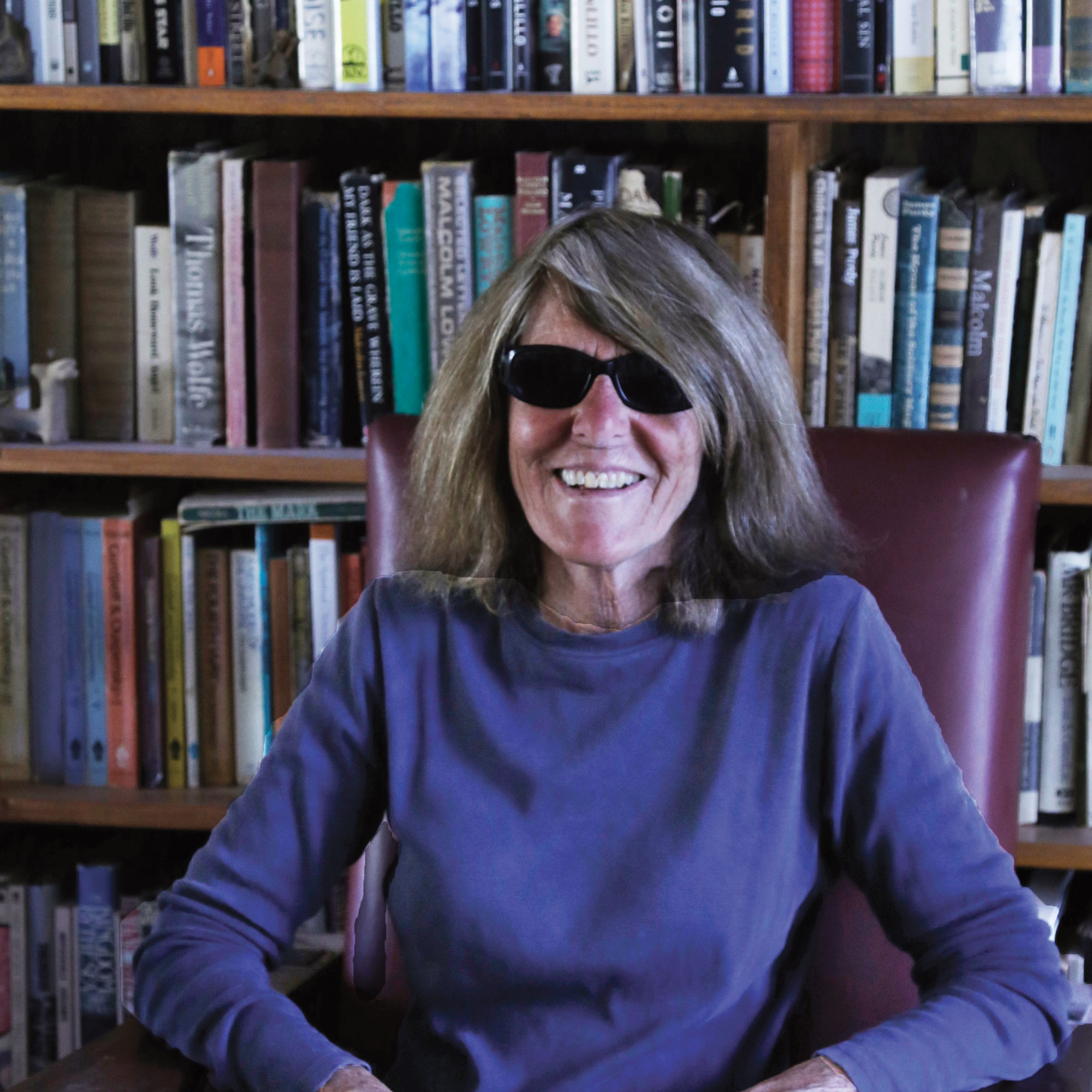The PEN/Faulkner Foundation announced today that Joy Williams has won the 2016 PEN/Malamud Award for Excellence in the Short Story. The annual award of $5,000 “recognizes a body of work that demonstrates excellence in the art of short fiction.”
 One of the most respected contemporary short fiction writers, Joy Williams is the author most recently of The Visiting Privilege: New and Collected Stories, published last fall by Knopf. Williams’s short fiction is known for its crisp, elegant prose, dark wit, and ability to seamlessly permute from the real to unsettlingly unfamiliar. Richard Ford, a member of this year’s PEN/Malamud selection committee, said that Williams’s stories are “incandescent, witty, alarming, often hilarious while affecting seeming inadvertence (but not really) in their powerful access to our human condition. She is a stirring writer and has long been deserving of the Malamud Award.”
One of the most respected contemporary short fiction writers, Joy Williams is the author most recently of The Visiting Privilege: New and Collected Stories, published last fall by Knopf. Williams’s short fiction is known for its crisp, elegant prose, dark wit, and ability to seamlessly permute from the real to unsettlingly unfamiliar. Richard Ford, a member of this year’s PEN/Malamud selection committee, said that Williams’s stories are “incandescent, witty, alarming, often hilarious while affecting seeming inadvertence (but not really) in their powerful access to our human condition. She is a stirring writer and has long been deserving of the Malamud Award.”
Williams is the author of five story collections, four novels, and two works of nonfiction. She has received the Rea Award for the Short Story and the Strauss Living Award from the American Academy of Arts and Letters, and her books have been finalists for the Pulitzer Prize, the National Book Award, and the National Book Critics Circle Award. Born in Chelmsford, Massachusetts, she currently resides in Key West, Florida, and Tucson, Arizona.
Williams will receive her award and read from her work at a ceremony at the Folger Shakespeare Library in Washington, D.C., on December 2.
Now in its twenty-eighth year, the PEN/Malamud Award was established in 1988 to honor the short fiction author Bernard Malamud, who died in 1986. The 2016 selection committee for the award included H. G. Carillo, Richard Ford, and Margaret Talbot. Previous recipients include Saul Bellow, Lorrie Moore, Adam Haslett, George Saunders, and Deborah Eisenberg.





 “Andrea Barrett has continually enlarged the geography of her imagination, and her lucky readers have been the beneficiaries of those explorations, experiencing, as her characters so often do, the way our own small pasts bear on our own small present,” wrote judges T. C. Boyle, Bill Henderson, and Karen Shepard in a press release. “Barrett offers us the news from other worlds as a way to understand our own…. And she accomplishes those broad thematic implications with a precise and quietly intelligent style that surprises and disturbs and gratifies. That deceptive formal modesty keeps our focus on the world at the fiction’s heart and produces testimonies designed to celebrate the attested rather than the attester. The result has been a body of stories that like all great fiction expands our knowledge, brings us more fully into contact with the suffering of others, and supplies intense and gorgeous pleasure.”
“Andrea Barrett has continually enlarged the geography of her imagination, and her lucky readers have been the beneficiaries of those explorations, experiencing, as her characters so often do, the way our own small pasts bear on our own small present,” wrote judges T. C. Boyle, Bill Henderson, and Karen Shepard in a press release. “Barrett offers us the news from other worlds as a way to understand our own…. And she accomplishes those broad thematic implications with a precise and quietly intelligent style that surprises and disturbs and gratifies. That deceptive formal modesty keeps our focus on the world at the fiction’s heart and produces testimonies designed to celebrate the attested rather than the attester. The result has been a body of stories that like all great fiction expands our knowledge, brings us more fully into contact with the suffering of others, and supplies intense and gorgeous pleasure.” One of the most respected contemporary short fiction writers, Joy Williams is the author most recently of
One of the most respected contemporary short fiction writers, Joy Williams is the author most recently of 
 Writers who have not yet published a full-length poetry collection are eligible. Submit no more than three poems of up to 60 lines each with a $30 entry fee, which includes a one-year subscription to the Malahat Review, by May 1. The winner will be announced in July and interviewed for the review’s monthly e-newsletter and website. Submissions can be made via e-mail to
Writers who have not yet published a full-length poetry collection are eligible. Submit no more than three poems of up to 60 lines each with a $30 entry fee, which includes a one-year subscription to the Malahat Review, by May 1. The winner will be announced in July and interviewed for the review’s monthly e-newsletter and website. Submissions can be made via e-mail to